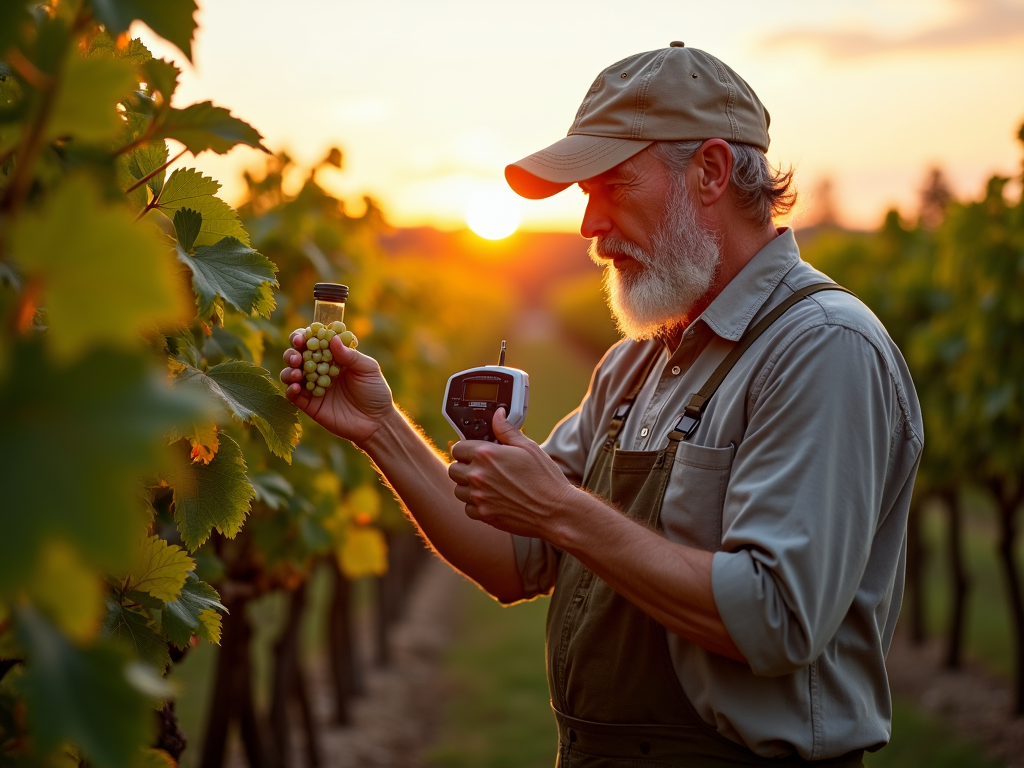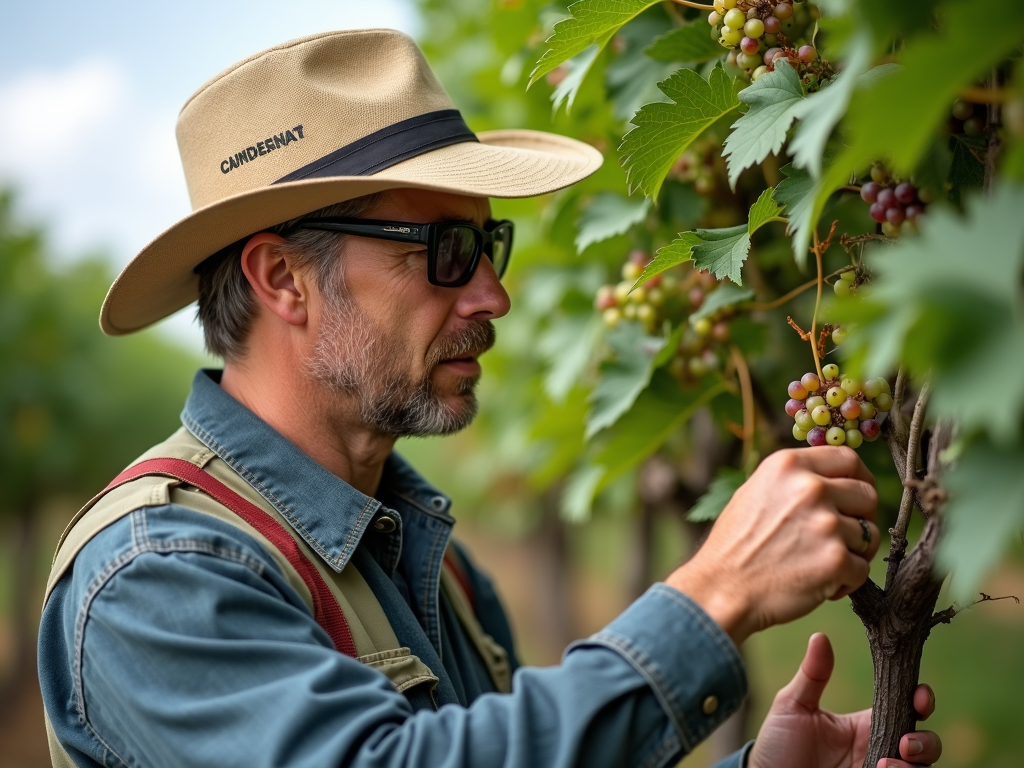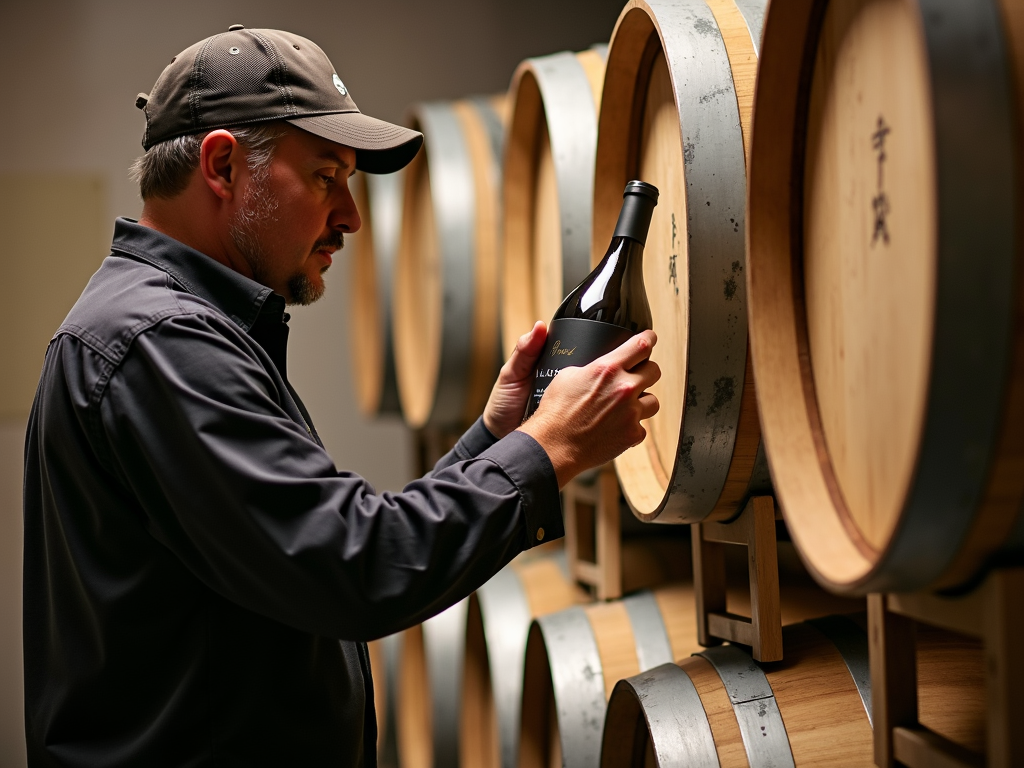Behind the Scenes: The Life of a Winemaker
Winemaking is an art that combines science, tradition, and a deep connection to nature. Behind every bottle of wine is a winemaker whose dedication and expertise bring the grapes to life. This article takes you behind the scenes to explore the life of a winemaker, from the daily routines in the vineyard to the challenges and rewards of crafting exceptional wines. We'll also delve into the world of wine tourism, the importance of family-owned wineries, and the rich heritage of California's wine country. Whether you're a wine enthusiast or simply curious about the process, this journey will give you a newfound appreciation for the passion and hard work that goes into every sip.
The Daily Life of a Winemaker
A winemaker's day is as varied as the wines they produce. It often begins before dawn, with a walk through the vineyard to assess the health of the vines and the progress of the grapes. Using tools like refractometers, they measure the sugar content to determine the perfect time for harvest. During the growing season, winemakers work closely with viticulturists to manage irrigation, pruning, and pest control, ensuring the vines receive optimal care.
When harvest arrives, the pace quickens. Winemakers oversee the picking, sorting, and crushing of grapes, often working late into the night. They monitor fermentation closely, adjusting temperature and yeast to influence the wine's flavor and aroma. Tasting is a daily ritual, allowing winemakers to track the wine's development and make decisions about blending and aging. In the cellar, they manage the aging process, selecting barrels and determining the right time for bottling. Every step requires precision, patience, and a keen sense of taste and smell.

Challenges and Rewards
Winemaking is not for the faint of heart. Nature can be both a friend and a foe, with weather patterns that can make or break a vintage. Droughts, frosts, and heatwaves can stress the vines, while heavy rains can dilute the grapes' flavors. Pests and diseases, such as powdery mildew or phylloxera, require constant monitoring and intervention. Additionally, the wine market is competitive, with trends and consumer preferences constantly evolving.
Despite these challenges, the rewards are profound. There's a unique satisfaction in nurturing the vines through the seasons and witnessing the transformation from grape to wine. Winemakers take pride in creating something tangible and beautiful, a product that brings people together and enhances life's moments. The camaraderie among winemakers and the joy of sharing their creations with others make the hard work worthwhile.

Wine Tourism: Experience the Charm of Family-Run Vineyards
Wine tourism offers a window into the world of winemaking, and family-run vineyards provide some of the most authentic experiences. These smaller estates often welcome visitors with open arms, offering guided tours that showcase the entire winemaking process. Guests can stroll through the vineyards, learn about sustainable farming practices, and even participate in harvest activities during the fall.
Tastings at family-run vineyards are intimate affairs, often led by the winemaker or a family member. They share stories about the estate's history, the unique characteristics of their wines, and the philosophy behind their craft. Many vineyards also host events like wine pairing dinners, live music nights, or harvest festivals, creating a sense of community and celebration. Wine tourism at these vineyards is not just about tasting wine; it's about connecting with the people and the place that make it special.

Family-Owned Wineries: Preserving Heritage in a Corporate World
In an era of consolidation and corporate ownership, family-owned wineries are a testament to tradition and resilience. These wineries often have deep roots, with generations of family members dedicated to preserving their legacy. They maintain old vines that produce complex, nuanced wines and adhere to time-honored winemaking techniques that have been passed down through the years.
Family-owned wineries also play a crucial role in their communities, supporting local economies and fostering a sense of identity. They are often at the forefront of sustainable practices, recognizing that caring for the land is essential for future generations. By staying independent, these wineries can focus on quality over quantity, producing wines that reflect their unique terroir and heritage.

Exploring California’s Vintner Heritage Through Local Wineries
California's wine country is a mosaic of history, innovation, and natural beauty. Napa Valley, with its iconic wineries and luxurious estates, is perhaps the most famous, but regions like Sonoma, Paso Robles, and Santa Barbara also boast rich vintner heritages. Local wineries in these areas offer visitors a chance to explore this legacy, with tours that highlight the pioneering spirit of early winemakers and the advancements that have shaped the industry.
Many wineries have historic significance, such as the Buena Vista Winery in Sonoma, founded in 1857, or the Beringer Vineyards in Napa, established in 1876. These estates provide a glimpse into the past, with preserved buildings, vintage equipment, and stories of the challenges and triumphs of early winemaking in California. By visiting local wineries, enthusiasts can appreciate the evolution of the industry and the enduring passion that drives it.

Jackson Family Wines vs Other Wine Brands
Jackson Family Wines exemplifies a modern approach to winemaking while honoring tradition. With a portfolio that includes renowned wineries like Kendall-Jackson, La Crema, and Stonestreet, the company emphasizes quality and sustainability. They invest in advanced viticultural practices, such as precision farming and water conservation, to minimize their environmental impact.
In contrast, some larger wine brands may prioritize consistency and volume, using techniques like bulk production and blending from multiple sources. While this can result in affordable, reliable wines, it may lack the distinctiveness of terroir-driven wines. Jackson Family Wines, however, focuses on expressing the unique characteristics of each vineyard, producing wines that reflect their origin. This commitment to quality and sustainability sets them apart in the industry.

Summary
The life of a winemaker is a blend of art, science, and unwavering dedication. From the early morning vineyard checks to the late-night fermentations, winemakers pour their heart and soul into every bottle. Family-owned wineries preserve the heritage and traditions of winemaking, offering unique experiences for wine tourists. California's rich vintner heritage is a testament to the passion and innovation that define the industry. Whether you're sipping a glass of wine or exploring a vineyard, remember the hard work and love that make it all possible.